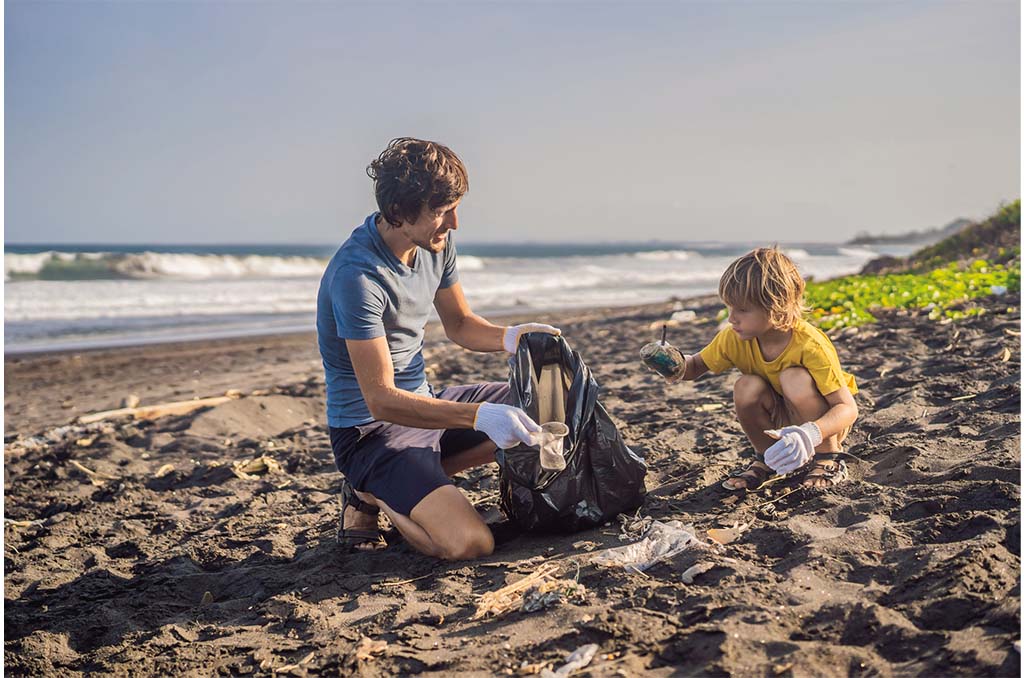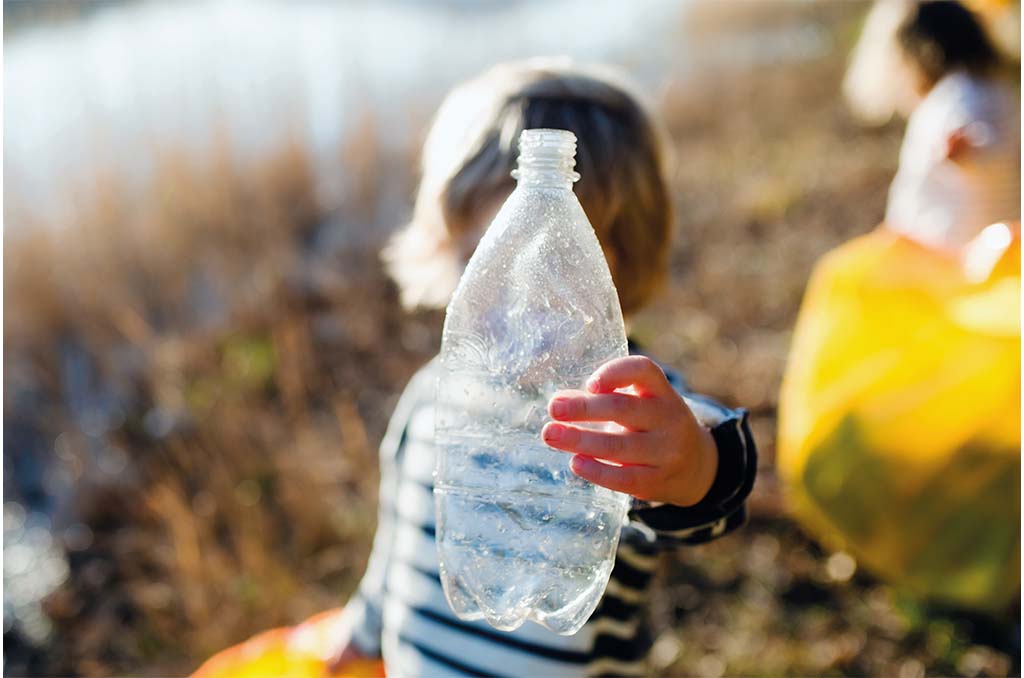
- HOME
- EDUCATION
Plastic Not Fantastic
By | 2 years ago
Schools should take the lead when it comes to switching away from single-use plastics, says Anna Turns – and here’s how

When my son proudly came home from school with a small plastic toy as a reward for good behaviour, my heart sank. Yet another piece of tat that will last a day or so then end up in landfill – and another example of the serious disconnect between the lessons we teach our children and the way we go about our daily lives. But three years ago, the UK government’s education secretary urged all schools to eliminate single-use plastics by 2022. And that’s now.
Children, and their families, learn by example and school communities have a fundamental responsibility to walk the walk, not just talk the talk. Change needs to be embedded into every aspect of a child’s classroom and curriculum.
So, encouraging children to avoid single-use plastic packaging in their lunchboxes when everything on the noticeboard gets laminated makes no sense. Asking people to walk to school instead of driving is bonkers when the school’s own electricity doesn’t come from renewable sources. Day-to-day messaging counts.
Taking the path towards positive action is such a powerful way to give children of all ages a sense of agency and to instil a real love for the natural world in them. While it’s not their responsibility to fix this mess – far from it – their involvement is key, and to most children, the solutions aren’t rocket science. They’ll appreciate sports day medals made of wood or cardboard instead of plastic and clock that cutlery is reusable, not something to be thrown away after one meal. Single-use drinks bottles will start to stick out like a sore thumb among the reusable ones stacked together in the corner of the class. Perhaps plastic rewards could be replaced with something radical like a packet of tomato seeds or a tree sapling to plant at home.
Teenage sisters Amy and Ella Meek founded Kids Against Plastic in 2016 and now run a brilliant Plastic Clever Schools initiative to enable pupils to become leaders of positive change. With more than 1,000 schools signed up nationwide, resources are all free and available to download. Surfers Against Sewage runs a Plastic Free Schools programme and you can sign up for their guide to eliminating single-use plastics online. Make your concerns known to the head of school.

That’s exactly what Lucy Cleland, mum and editorial director of Country and Town House magazine, did after her son came home with yet another cheap plastic star trophy that would ultimately end up in landfill. ‘Cutting the ties between plastic as a reward and replacing it with something that has a positive impact has to be a no brainer,’ Cleland says. ‘It doesn’t have to be something more expensive; it just needs to have someone thinking about alternatives that will bring ultimately, a more rewarding relationship with their environment and local community.’
Start with a whole school audit that quantifies use of unnecessary plastics. Pupils can then use their creative skills to design how best to communicate solutions to their peers or engage parents and teachers. Schools can sign up to Terracycle’s felt-tip pen recycling scheme, achievements celebrated with milkshake Mondays – metal straws optional.
This is where systemic change starts. Dealing with plastic pollution can be a gateway to a meaningful and lifelong connection with nature.
Inspired to make a difference? Tell us how your school takes action this term by tagging us in your pictures and activities @schoolhouse_magazine. We will publish our favourites in the September issue and award the School House Green Champion Prize 2022 – judged by Lucy Cleland, Victoria Lambert and me.
Anna Turns is author of Go Toxic Free: Easy and Sustainable Ways to Reduce Chemical Pollution (Michael O’Mara, £14.99).
READ MORE FROM SPRING SUMMER 2022
Politics Q&A: Nicky Morgan | A Matter of Faith



